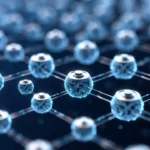In advanced manufacturing, nanoscale manufacturing processes have emerged as a transformative paradigm, enabling the fabrication of materials and devices at the atomic and molecular levels. This article explores the expansive domain of nanoscale manufacturing processes, unveiling their significance, tracking the evolution of key techniques, examining diverse applications, and envisioning the transformative possibilities they hold for various industries.
The Significance of Nanoscale Manufacturing Processes
Nanoscale manufacturing processes represent a revolutionary shift from conventional manufacturing methods, offering unprecedented precision, control, and scalability at the nanoscale. Understanding and harnessing these processes are crucial for unlocking new possibilities in fields ranging from electronics and materials science to medicine and energy.
Precision Engineering and Miniaturization
The significance of nanoscale manufacturing processes lies in precision engineering and the ability to manipulate materials and structures at the nanoscale. This level of control enables the creation of miniaturized devices with enhanced performance, impacting industries such as electronics, photonics, and medical diagnostics.
Scalability and Mass Production
Nanoscale manufacturing processes are designed not only for precision but also for scalability. These processes can be scaled up for mass production, paving the way for integrating nanomaterials and nanodevices, from semiconductors to advanced sensors, into commercial applications.
Multidisciplinary Applications
The versatility of nanoscale manufacturing processes enables multidisciplinary applications across various industries. From creating nanoscale components for electronics to engineering advanced drug delivery systems, these processes play a pivotal role in reshaping the technological landscape.
Evolution of Key Techniques in Nanoscale Manufacturing
The journey of nanoscale manufacturing processes is intricately woven with the evolution of key techniques that have revolutionized the precision engineering of materials and devices.
Top-Down and Bottom-Up Approaches
It encompasses both top-down and bottom-up approaches. Top-down approaches reduce larger structures to nanoscale dimensions, while bottom-up approaches build structures from atomic or molecular components. These techniques offer complementary strategies for nanofabrication.
Photolithography and Electron Beam Lithography
Photolithography and electron beam lithography are cornerstone techniques in nanoscale manufacturing processes for the semiconductor and microelectronics industries. These methods utilize light or electron beams to selectively pattern surfaces with nanoscale precision, thereby forming intricate patterns crucial for device fabrication.
Self-Assembly and Molecular Nanotechnology
Self-assembly and molecular nanotechnology harness the inherent properties of materials to organize into desired structures spontaneously. Biological processes inspire these techniques and play a crucial role in creating nanoscale structures for applications such as drug delivery, nanoelectronics, and nanosensors.
Nanoprinting and Nanoinjection Molding
Nanoprinting and nanoinjection molding are emerging techniques that enable the high-throughput production of nanoscale structures. These methods involve the precise deposition or molding of nanomaterials, allowing for the creation of intricate patterns and structures for various applications.
Diverse Applications of Nanoscale Manufacturing Processes
Nanoscale manufacturing processes have far-reaching applications across various industries, redefining how materials, devices, and systems are engineered for enhanced performance and functionality.
Electronics and Semiconductor Industry
Nanoscale manufacturing processes are pivotal for producing smaller, more powerful, and energy-efficient devices in the electronics and semiconductor industry. These processes enable the fabrication of nanoscale transistors, memory devices, and interconnects, which are critical for advancing technology.
Medicine and Biotechnology
It plays a crucial role in medicine and biotechnology. From the fabrication of nanoscale drug delivery systems to the engineering of diagnostic nanosensors, these processes offer innovative solutions for targeted therapies, imaging, and personalized medicine.
Energy Storage and Conversion
It contributes to advancements in energy storage and conversion technologies in the energy sector. Fabricating nanomaterials for batteries, supercapacitors, and solar cells enhances efficiency, storage capacity, and overall performance.
Advanced Materials and Nanocomposites
Nanoscale manufacturing processes enable the creation of advanced materials and nanocomposites with tailored properties. These materials have applications in the aerospace, automotive, and construction industries, where lightweight, high-strength materials are in high demand.
Transformative Possibilities and Future Outlook
The trajectory of nanoscale manufacturing processes points towards a future filled with continued innovation, integration, and unprecedented possibilities.
Nanorobotics and Autonomous Manufacturing
The integration of nanorobotics into nanoscale manufacturing processes holds transformative possibilities. Autonomous manufacturing systems at the nanoscale could revolutionize production processes, allowing for on-the-fly adjustments and customization with unparalleled precision.
Quantum Manufacturing and Computing
Advancements in nanoscale manufacturing processes may pave the way for quantum manufacturing, where quantum bits (qubits) are precisely engineered for quantum computing. This paradigm shift could redefine information processing capabilities, enabling quantum computers to tackle complex problems beyond the reach of classical computers.
Sustainable Nanomanufacturing
The future of nanoscale manufacturing processes includes a focus on sustainability. Researchers are exploring eco-friendly approaches and green nanomanufacturing techniques to minimize environmental impact and ensure responsible development in the nanotechnology landscape.
Conclusion
Nanoscale manufacturing processes have evolved from a scientific curiosity to a transformative force with far-reaching implications for various industries. As we navigate the nanoscale realm, the significance of nanoscale manufacturing processes is both promising and profound. With continued research, technological breakthroughs, and a commitment to responsible applications, nanoscale manufacturing processes will continue to be a driving force in reshaping how we engineer materials and devices, unlocking new possibilities, and redefining the future of precision engineering.





